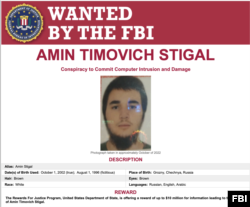The European Union has initiated investigations into Meta and TikTok for spreading false information.

On Thursday, the EU revealed investigations into the owner of Facebook, Meta, and TikTok. They are looking for more information on the actions they have implemented to prevent the spread of “illegal content and disinformation” following the Hamas attack on Israel.
The European Commission has issued formal information requests to Meta and TikTok, marking the first action taken under the EU’s new digital content law.
Last week, the European Union initiated an investigation into the social media platform X, previously known as Twitter, which is owned by billionaire mogul Elon Musk.
The commission stated that they asked Meta about their involvement in spreading and promoting illegal content and misinformation surrounding the Hamas-Israel conflict.
In a separate announcement, the company expressed a desire to learn more about TikTok’s actions to combat the dissemination of terrorist and violent material, as well as hate speech.
The European Union’s governing body stated that it requires further details from Meta regarding its actions to safeguard the fairness of elections.
Both Meta and TikTok must submit their responses by October 25. The deadline for less urgent aspects of the request for information is November 8.
The commission also inquired about the specific measures TikTok is taking to ensure compliance with regulations regarding safeguarding minors on the internet.
The European Union has established a formidable arsenal to combat the influence of large technology companies through its significant legislation, the Digital Services Act (DSA), and a related law known as the Digital Markets Act. These laws impose stringent restrictions on the operations of internet giants.
The European Union has increased its efforts to combat disinformation following Russia’s invasion of Ukraine in the previous year and their manipulation of public opinion in Europe.
The matter has become more pressing since Hamas’ attack on Israel on October 7 and the subsequent release of violent images that flooded social media platforms.
The DSA was implemented for platforms classified as “very large,” such as Meta and TikTok, which have over 45 million monthly European users as of August.
The DSA prohibits the sharing of illegal content on the internet, with potential fines reaching up to six percent of a company’s worldwide revenue.
Thierry Breton, the chief enforcer of technology in the EU, issued cautionary letters to executives of tech companies such as Mark Zuckerberg of Meta, Shou Zi Chew of TikTok, and Sundar Pichai of Alphabet, the parent company of YouTube.
Growing EU fears
Breton, who serves as the European Union’s internal market commissioner, urged the executives to take strong action against illegal content in the wake of Hamas’ attack.
Last week, Meta announced that it was allocating additional resources to address and stop the spread of illegal and troublesome content related to the conflict between Hamas and Israel.
On Wednesday, Breton shared his concerns about the negative effects of false information on the European Union.
He stated that the widespread spread of illegal material and false information poses a significant danger of stigmatizing certain groups, destabilizing our democratic systems, and exposing our children to violent material.
AFP fact-checkers have discovered multiple posts on Facebook, TikTok, and X platform promoting a fabricated White House document claiming to provide $8 billion in military aid to Israel.
Multiple platforms have experienced users falsely sharing content from different conflicts, and in some cases even from video games, as actual footage from Israel or Gaza.
After the EU implemented stricter regulations on large tech companies, some businesses, such as Meta, are considering the possibility of providing a paid option for their services within the European Union.
Source: voanews.com




